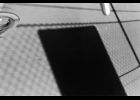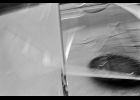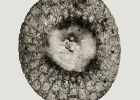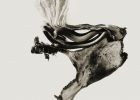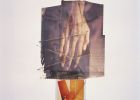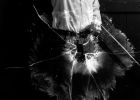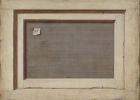Suponhamos: cenários para uma ética flusseriana / Suppose that: Scenarios for a Flusserian Ethics
This essay focuses on the formal aspects of Flusser’s Angenommen. The first part provides the general outline of the book and the second discusses its relationship to other initiatives by Flusser, both authorial (Vampyroteuthis Infernalis) and collaborative (Joan Fontcuberta’s plants, Louis Bec’s sulfanogrades and Guimarães Rosa’s garças). The third part discusses the ethical dimension of the book especially Flusser’s notion of engagement. The idea is to associate the positions of the two main characters, the terrorist and the futurologist, with Flusser’s own situation when he decided to leave Brazil and return to Europe in the early 1970s. Flusser rejects engagement (the terrorist) and scientific theory (the futurologist), but also seems to suggest that the third position – that of the artist –, the ideal synthesis, is not yet given. The artist’s situation has no place, it is improbable, but it is not utopian - without topos. Utopia is next to science fiction. It is a projection of an imaginary world that does not serve as knowledge. Flusser’s focus, in Angenommen and other works is on the improbability of love, or, as he points out in a letter to Mira Schendel, on aisthesis as a method of political criticism. Flusser's ethics have not yet reached the present.
Flusser et les photographes, les photographes et Flusser / Flusser and photographers, photographers and Flusser / Flusser e os fotógrafos, os fotógrafos e Flusser
The concept of experimental photography has rarely been defined, nor has it been the subject of much research in studies of contemporary photography. Vilém Flusser is one of the few writers who, in his book Towards a Philosophy of Photography, proposed a definition of experimental photography as “playing against the apparatus”, i.e. the practice of some photographers who do not abide by the rules of photography and perturb the standard operations of the apparatus by playing against the camera. Aside from this conceptual definition, Flusser himself gave few examples of this practice, principally Andreas Müller-Pohle and Joan Fontcuberta. While expanding this definition, this essay sheds light on contemporary photographers whose work can be qualified as experimental in this respect. Some deconstruct the camera, reinventing it or photographing without a lens (pinhole) or even without a camera (photograms). Some undo the image creation process, playing with time, with light, with the chemical development process or with image printing. And some redefine the author-photographer, erasing him or giving him a different role in the photographic process. Contemporary experimental photography is not a school, nor a movement, but simply a current, a moment between the decline of traditional documentary analog photography and the rise of digital photography.
